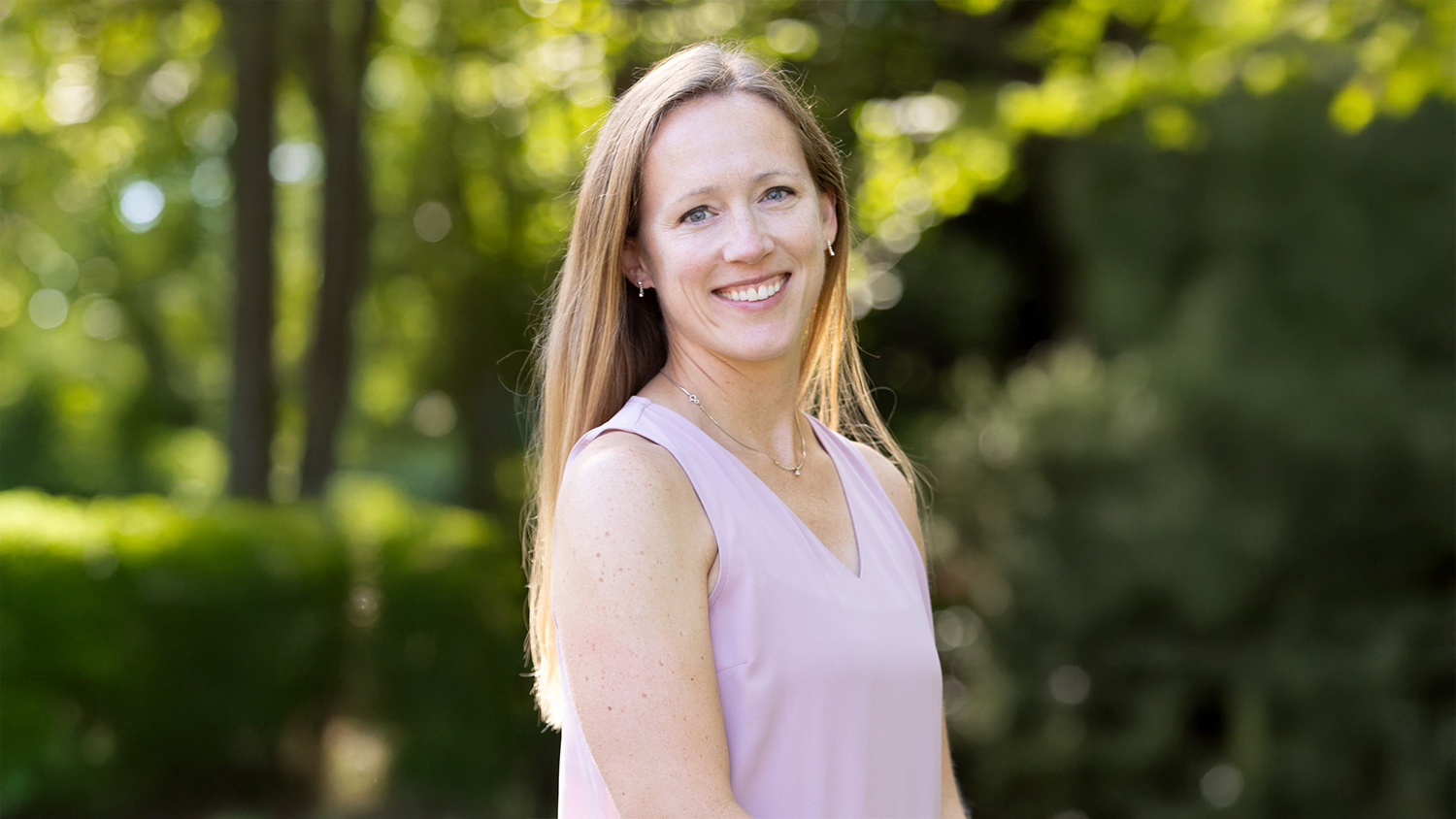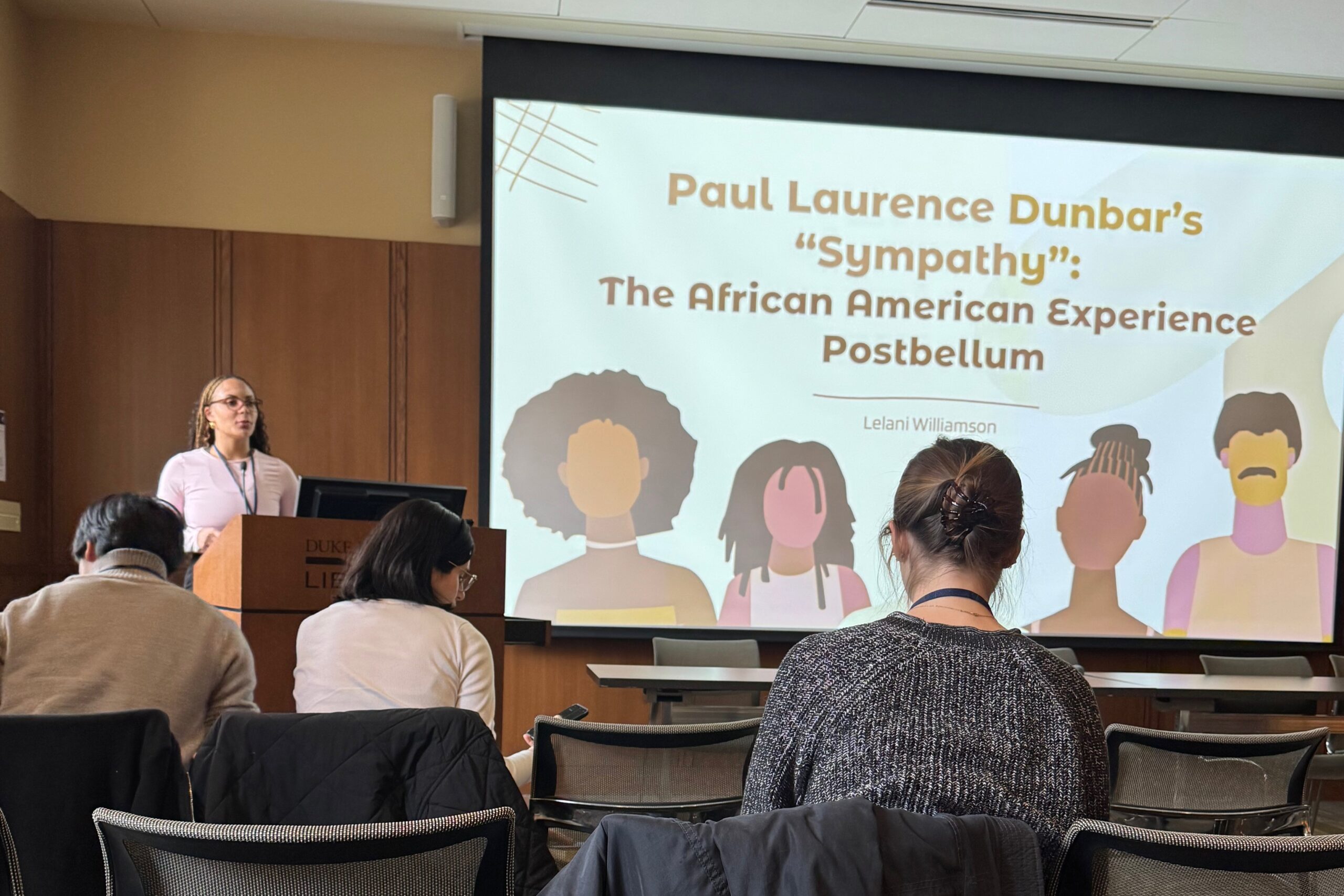Spotlight on our Students: Connie Feinberg and Alternative Service Break
Connie Feinberg on safari with the Women and Minorities Engineering Programs’ ASB Rwanda Trip.
“No matter who you are, or how much you think you know, traveling humbles you. It makes you realize just how much there is in the world to learn.”
In this edition of Spotlight on Our Students, Connie Feinberg tells about being a part of an Alternative Service Break to Rwanda. Connie has recently decided to major in Industrial Systems Engineering thanks to lessons learned from this trip. The trip was sponsored by NC State’s Women and Minorities in Engineering Program and was a unique and eye-opening opportunity to explore the challenges facing the people of Rwanda.
USP: Connie, first of all, your photos from this trip look amazing, but I know that is not the main reason you went to Rwanda. Tell us more about the mission of this trip and how you got involved.
 CF: I was a part of the Women and Minorities Engineering Programs’ ASB Rwanda Trip. I learned about it in my E 101 class last semester, which was taught by Dr. Laura Bottomley. She was one of the Professors leading the trip and recommended that we apply (especially since the trip was only $50!) When I first talked to my parents about applying, they weren’t very comfortable with the idea of me going to a place they had never been or didn’t know much about. I decided to be a little rebellious and applied anyway. When I found out I was invited to go, convincing my parents only made me all the more excited!
CF: I was a part of the Women and Minorities Engineering Programs’ ASB Rwanda Trip. I learned about it in my E 101 class last semester, which was taught by Dr. Laura Bottomley. She was one of the Professors leading the trip and recommended that we apply (especially since the trip was only $50!) When I first talked to my parents about applying, they weren’t very comfortable with the idea of me going to a place they had never been or didn’t know much about. I decided to be a little rebellious and applied anyway. When I found out I was invited to go, convincing my parents only made me all the more excited!
During the trip, we toured the Nyamirambo Women’s Center and surrounding neighborhood, the University of Rwanda, and the Kigali Genocide Memorial, in addition to visiting the local markets. We also traveled to the Zion Temple Kimironko Community Parish where we helped with a building project, learned about some of the Pastor’s other projects, and met some of the children who went to school at the parish. For two days we also went on a game drive in the Akagera National Park.
USP: That sounds amazing and action packed! What inspired you to get involved on this trip and what did you hope to learn from it?
CF: I have been fortunate that my family has traveled quite a bit over my lifetime. I have come to understand traveling is so much more than simply walking around in a new place. Traveling is the great equalizer. No matter who you are, or how much you think you know, traveling humbles you. It makes you realize just how much there is in the world to learn. It inspires you to reanalyze the assumptions and seek new outlooks. This trip to Rwanda would provide so many opportunities to completely shift the way I look at things. I have had the opportunity to visit Europe and South America, but I have always wanted to travel to Africa. The culture seemed so incredibly different from anything I have experienced and I wanted to be able to better understand it and better understand their perspective on the world. This trip felt like a once in a lifetime chance at seeing a whole other side of things.
USP: Yes! And that is a part of what we hope each University Scholar experiences during their time in college, even if it is simply in the form of a Scholars Forum event that exposes you to a new concept. What was the main goal you all accomplished on the trip?
 CF: The main goal of this trip was to learn, and I think that was most highlighted when we visited the Kigali Genocide Memorial. In 1994 there was a Genocide against the Tutsi. This memorial gave the history leading to and following the memorial. The main messages of the memorial were of peace and forgiveness. They told us about how they had a period every year where people close down businesses and reflect upon that time and how they can move forward. They actively educate the next generation on the issue so that no hatred or discrimination remains. It seemed like they were not only recovering from the tragedy but moving forward as one people. Not as Hutus, Tutsis, and Twas, but as Rwandans. After the memorial, everyone on the trip sat and talked about the experience. The discourse that followed blew me away. If nothing else, that one conversation made the four days of plane travel worth it. It encapsulated why we were there. We took all of our backgrounds, knowledge, perspectives, and interpretations and talked about what we had learned and how we could bring our new understandings of peace and forgiveness back home with us.
CF: The main goal of this trip was to learn, and I think that was most highlighted when we visited the Kigali Genocide Memorial. In 1994 there was a Genocide against the Tutsi. This memorial gave the history leading to and following the memorial. The main messages of the memorial were of peace and forgiveness. They told us about how they had a period every year where people close down businesses and reflect upon that time and how they can move forward. They actively educate the next generation on the issue so that no hatred or discrimination remains. It seemed like they were not only recovering from the tragedy but moving forward as one people. Not as Hutus, Tutsis, and Twas, but as Rwandans. After the memorial, everyone on the trip sat and talked about the experience. The discourse that followed blew me away. If nothing else, that one conversation made the four days of plane travel worth it. It encapsulated why we were there. We took all of our backgrounds, knowledge, perspectives, and interpretations and talked about what we had learned and how we could bring our new understandings of peace and forgiveness back home with us.
USP: That sounds like you all wrestled with some very challenging and complex issues. What would you say were some of the most challenging aspects of your time in Rwanda?
CF: Some of the most consistently challenging aspects of this trip were getting used to the social norms. For example, here in America and especially in the South, we tend to be pretty open and expressive. If I were to smile and acknowledge a stranger on the bus because I accidentally just made eye contact with them, that’s usually reciprocated. If the same thing happened there, they usually returned a gaze that came off fairly gruff and begrudging. I eventually realized, that there was a lot of context that I wasn’t thinking about. Many of the people there had lived through a genocide of friends turning on friends barely 20 years ago, so they likely have a lot of walls up to those around them.
USP: It is so valuable to reflect on how context impacts social norms, not something we are called to do often in our daily routines. Did you learn anything about yourself from this experience?
CF: I actually figured out that I want to major in Industrial Systems Engineering! It clicked for me how much I  want to directly help others and make a difference, and that my abilities combined with ISE would be the best way for me to do so. With ISE, I could work with logistics, creatively problem solve, optimize various processes already in place, and I could do it almost anywhere! I could even potentially try to go back to Rwanda and maybe help a hospital or a community figure out a way to best optimize the resources and systems already in place to make it more efficient and to make even more progress.
want to directly help others and make a difference, and that my abilities combined with ISE would be the best way for me to do so. With ISE, I could work with logistics, creatively problem solve, optimize various processes already in place, and I could do it almost anywhere! I could even potentially try to go back to Rwanda and maybe help a hospital or a community figure out a way to best optimize the resources and systems already in place to make it more efficient and to make even more progress.
USP: That is the NC State maxim “Think and Do” in action. I’m so glad that clicked for you. Did you learn anything about the world on a larger scale?
CF: I learned just how much we tend to allow ourselves to live in a bubble here. How unaware we are of the problems that are occurring all over the world, and allow them to continue to happen. For example, I had never heard of the Rwandan Genocide before learning about this trip. After learning more about the Genocide, it turns out during that time a lot of Americans were either unaware of it or didn’t make an effort to help even after Rwandans asked for aid. I plan to make more of an effort to become more aware of the world around me and encourage others to do the same.
USP: It sounds like this was a very impactful experience for you overall. I mean, it even helped you decide on a major! How can other University Scholars get involved in ASB trips?
CF: You can get involved by going to the CSLEPS website to learn about ALL the different ASB trips they offer. I highly encourage anyone and everyone to go on an ASB trip if at all possible. Everyone I have met who has been on an ASB trip has absolutely loved it. I can almost guarantee you it will change your life for the better (at least a little).
 USP: Connie, thanks so much for your time and best of luck as exams approach. We look forward to hearing how the ISE major challenges you in the future.
USP: Connie, thanks so much for your time and best of luck as exams approach. We look forward to hearing how the ISE major challenges you in the future.
- Categories:


